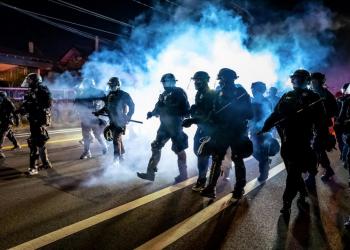
Case Alert: Circuit Court Rules on the “Danger Doctrine” and How it Applies in Civil Cases
The state-generated “danger doctrine” is an element of the Fourteenth Amendment’s Due Process Clause. For the victim of a state-generated dangerous situation to be entitled to civil redress, the danger created must be “particularized” as to the plaintiff himself. A state-generated dangerous situation that affects the public in general, as opposed to a civil plaintiff in particular, is insufficient to trigger the “danger doctrine.”
On May 25, 2020, George Floyd, a Black man, died at the hands of a white Minneapolis police officer — who was subsequently convicted of second-degree murder and other charges — during an arrest gone sour.
That summer, protests occurred throughout the country, not the least of which included in Seattle. In Seattle, the Seattle Police Department (“SPD”) and the city’s mayor took the unprecedented step of surrendering to demonstrators for three weeks an SPD precinct and eight blocks of the surrounding neighborhood. The area was soon referred to as “CHOP,” shorthand for the “Capitol Hill Occupied Protest” zone. Top Seattle officials, including members of the city council and its mayor, supported and encouraged CHOP (in what the court referred to here as an “egregious” act), with Mayor Jenny Durkan likening it to a “block party” and “the summer of love.”
The city provided the CHOP occupiers with portable toilets, lighting and other support, and modified the emergency response protocols of the Seattle police and fire departments. This response prevailed despite growing evidence of the lawlessness and danger in the CHOP district, with a mounting body count.
During this time, Horace Lorenzo Anderson, Jr., a 19-year-old with unspecified special needs, ventured into the CHOP district. Upon doing so, he is alleged to have encountered an acquaintance — Marcel Long — with whom he had a history of antagonism. The encounter resulted in Long shooting Anderson at least four times, seriously wounding him. Other CHOP participants carried the still-breathing Anderson to an impromptu “medical tent.” Paramedics held off entering the CHOP area to assist Anderson for about 20 minutes while waiting for the SPD’s okay. By the time police and fire officials entered the area, CHOP participants had transported Anderson to a nearby hospital in a truck. Anderson was soon pronounced dead.
On July 1, 10 days later, Mayor Durkan issued an executive order restoring official control over CHOP.
Donnitta Sinclair — Anderson’s mother and the plaintiff in this case — sued the city in federal court pursuant to 42 U.S.C. § 1983, alleging that the city was civilly liable for having violated her Fourteenth Amendment substantive due process right to the companionship of her adult son. Plaintiff Sinclair alleged in her lawsuit that the city’s actions and failure to act regarding CHOP created a foreseeable danger for her son and that the city, being “deliberately indifferent to that danger,” was therefore civilly liable for her loss. In filing this lawsuit, Sinclair employed what is sometimes referred to as the “danger doctrine,” which if applicable, would arguably hold the city responsible for her loss. The federal district court held that it did not, dismissing the lawsuit with prejudice. Sinclair appealed.





